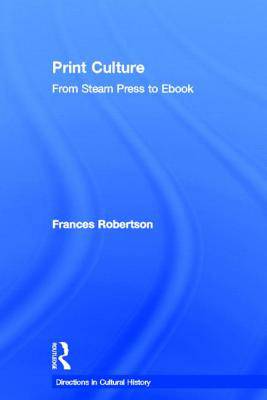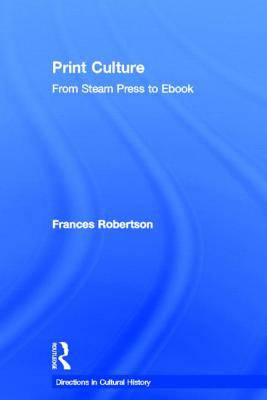
- Retrait gratuit dans votre magasin Club
- 7.000.000 titres dans notre catalogue
- Payer en toute sécurité
- Toujours un magasin près de chez vous
- Retrait gratuit dans votre magasin Club
- 7.000.0000 titres dans notre catalogue
- Payer en toute sécurité
- Toujours un magasin près de chez vous
Description
With the advent of new digital communication technologies, the end of print culture once again appears to be as inevitable to some recent commentators as it did to Marshall McLuhan. And just as print culture has so often been linked with the rise of modern industrial society, so the alleged demise of print under the onslaught of new media is often also correlated with the demise of modernity.
This book charts the elements involved in such claims-print, culture, technology, history-through a method that examines the iconography of materials, marks and processes of print, and in this sense acknowledges McLuhan's notion of the medium as the bearer of meaning. Even in the digital age, many diverse forms of print continue to circulate and gain meaning from their material expression and their history. However, Frances Robertson argues that print culture can only be understood as a constellation of diverse practices and therefore discusses a range of print cultures from 1800 the present 'post-print' culture.
The book will be of interest to undergraduate and postgraduate students within the areas of cultural history, art and design history, book and print history, media studies, literary studies, and the history of technology.
Spécifications
Parties prenantes
- Auteur(s) :
- Editeur:
Contenu
- Nombre de pages :
- 168
- Langue:
- Anglais
- Collection :
Caractéristiques
- EAN:
- 9780415574167
- Date de parution :
- 28-11-12
- Format:
- Livre relié
- Format numérique:
- Genaaid
- Dimensions :
- 156 mm x 234 mm
- Poids :
- 426 g

Les avis
Nous publions uniquement les avis qui respectent les conditions requises. Consultez nos conditions pour les avis.






